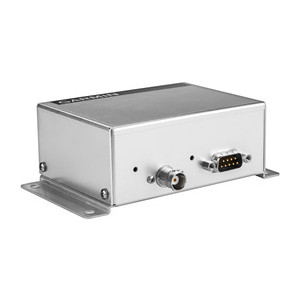GPS 20A
Affordable WAAS position source for ADS-B
- Rule-compliant, non-TSO’d GPS position source for experimental aircraft
- Adds new capabilities for Garmin G3X and G3X Touch systems
- Meets WAAS/SBAS position source requirements for ADS-B “Out”
- Compatible with a wide range of 1090 ES transponders
- Provides an economical path to ADS-B compliance
Designed to fit within the equipment budget and operating requirements of most experimental/amateur-built and light sport (LSA) aircraft owners, the GPS 20A provides a simple, self-contained WAAS position source that works with most 1090 ES transponders to meet the latest Federal Aviation Adminstration (FAA) rules for ADS-B “Out” compliance.
Think ADS-B on a Budget
Leveraging technology from our certified WAAS GPS systems, the non-TSO’d GPS 20A offers thousands of LSA owners a low-cost way to satisfy position source requirements for their ADS-B solutions. Under the provisions for NextGen ATC implementation, all aircraft operating in controlled U.S. airspace need to be equipped with ADS-B “Out” capability before end-of-year 2019. The GPS 20A provides the “missing link” that many recreational flyers have been needing to equip their aircraft for ADS-B compliance — without breaking the bank.
How the Technology Works
Using data from the worldwide GPS satellite network, the GPS 20A receiver generates precise information about your aircraft’s position, track and groundspeed. It then provides this information to your ES transponder’s “squitter” signal (via an RS-232 interface), which then broadcasts the data to the ADS-B ground station network for relay to ATC and other ADS-B “In” equipped aircraft in the surrounding airspace. This extended squitter technology allows your aircraft to automatically transmit more accurate and useful traffic surveillance data — including aircraft flight ID, position, altitude, velocity, climb/descent and heading information — to those tracking and controlling aircraft movements in ATC airspace. The extended squitter format can accommodate significantly more data elements than the basic Mode S transponder signal, so ADS-B system users are able to track each airplane’s flight path with much greater precision, accuracy and situational awareness.
It's a Global Solution
Notably, the Garmin WAAS position source/1090 ES transponder combination also has the advantage of being a worldwide ADS-B “Out” solution — unlike the 978 MHz UAT format used in some lower-cost ADS-B datalink systems for the U.S. market. Pilots who want to fly outside the U.S. will need a 1090 MHz signal output (such as that provided by an ES transponder) to meet ADS-B performance requirements around the globe. For LSA owners who already have a Mode S extended squitter transponder — like the Garmin GTX 23ES, GTX 35R or GTX 45R, for example — the GPS 20A position source provides an easy way to satisfy your go-anywhere ADS-B needs at minimum cost.
Ideal for your G3X/G3X Touch System
Garmin G3X and G3X Touch package owners using the GTX 23ES transponder can easily install the GPS 20A by connecting a single RS-232 interface to provide compliant WAAS position data to the transponder for ADS-B “Out” — while providing a supplemental source of high-quality GPS guidance to their navigation and display systems. With these basic components, your system not only meets ADS-B “Out” requirements — but by simply adding an affordable GDL 39 portable or GDL 39R remote receiver, you can also access such ADS-B “In” benefits as datalink traffic with spoken audio alerts (“Traffic, Traffic”) and subscription-free U.S. weather, including animated NEXRAD radar, METARs, TAFs, winds and temperatures aloft, PIREPs, NOTAMs and more. As an alternative, the GDL 39 receiver with its built-in Bluetooth® capability can also wirelessly send this ADS-B traffic and weather data to your iPad® or other devices running Connext®-capable apps such as Garmin Pilot, as well as the aera 795/796 series of portables. So, you have lots of options for utilizing the free information link benefits of ADS-B in your GPS 20A-equipped cockpit.
The Bluetooth® word mark and logos are owned by the Bluetooth SIG, Inc. iPad is a trademark of Apple Inc.

